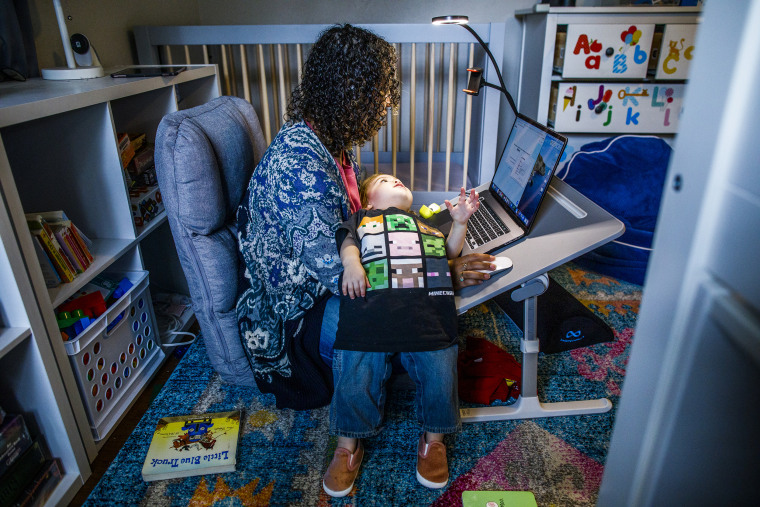Looking around lately at what’s happening to women I know across a wide variety of industries, I have to ask: Did business leaders learn anything from what has happened during the “she-cession?”
From the beginning of the pandemic, women’s careers have suffered disproportionately. This is partly because many of the industries hardest hit by shutdowns employ large numbers of women, such as hospitality. It’s also because women have faced more of the caregiving responsibilities at home. So with kids out of school, working mothers have faced some of the biggest setbacks. (One factor in this is the wage gap. When a household includes a mom and a dad, the mom’s salary is still more often the lower of the two, so when one salary has to go it’s more often hers.)
The latest figures show unemployment among women has been trending downward. While that’s a good sign, there are troubling signs now as cases rise with the spread of the delta variant.
Take a teacher I know who works in a school district that does not require masks. She’s been told that if she is exposed to Covid-19, she’ll have to quarantine for two weeks — and be forced to use her own paid time off to cover that time. And when that is gone, her salary will be docked. Similar problems are occurring across the country, where individual districts are making these decisions. Three-quarters of public school teachers are women. Many of them, including my friend, are considering quitting their jobs. As a single mom, she just can't operate under that level of instability.
Education is only one field in which workers are more likely to be exposed to large numbers of people throughout the day. “Among essential jobs, those with higher risk of virus exposure include frontline health care, along with essential retail and service sectors such as grocery, sanitation, and postal service,” a report from the Center on Women, Gender, and Public Policy at the University of Minnesota explained. “Given women’s concentration in health and social service occupations, many women workers were designated essential workers with high risk of exposure to the virus.”
If women continue to face high risk of exposure, and if the policies they’re under are unfair, they’re more likely to drop out of the workforce.
Meanwhile, with each passing week, more children have to quarantine at home from school — which means a parent has to be there. Just weeks into the school year in parts of the country (it hasn’t even begun yet in other areas), 90,000 kids have had to quarantine, the Hill reported.
As businesses have been reopening, more and more managers expect people back in the office. Although some of those expectations have been curtailed due to the delta variant, I’m still hearing from people who don’t know what to do. Their kids have to quarantine at home, and their jobs are at risk if they stay home for too long.
Addressing the challenge head-on
I know that for many women, it’s tempting to struggle with this quietly. Women are often wary of being particularly “visible” in the workplace, partly because some have faced backlash for garnering attention.
But we need to advocate for ourselves. We need to present these challenges to our managers and executives, offer ideas for solutions, and expect them to follow through. It doesn’t hurt to try. When you know your value, you can sometimes help others see it too.
But, of course, it’s not up to us alone. Businesses have numerous levers they can pull — fully supporting remote work; providing childcare; sometimes even using business interruption insurance. Business leaders need to take these challenges seriously, get creative, and seek solutions. If they don’t, they’ll be wringing their hands again in a few months, saying, “Oh, no, so many more women left our company.” Of course they did! You gave them no other choice.
There’s also another crucial category of people who can make a big difference.

‘Beautiful bystanders’
All of us must keep our eyes and ears out within our businesses, and offer to advocate for each other as we attempt to navigate through this extremely challenging time. This means not just accepting women’s departures from the business as somehow being inevitable.
Recently, someone I know told me about a woman in his industry who thinks she might have to quit. “It really sucks,” he said.
I shot back. “No, it’s not that it ‘really sucks.’ It’s about a question: Why are you all doing it this way?” Anyone in a company, whether they’re working on site or from home, can speak up on behalf of a colleague and push for solutions. I call people who do this “beautiful bystanders.”
Women have worked long and hard to make the gains we’ve achieved. Together, we can mitigate the damage right now — and build a stronger future.
Denise Hamilton is an inclusion strategist, keynote speaker, and founder of WatchHerWork, a multimedia platform closing the achievement gap for women.
